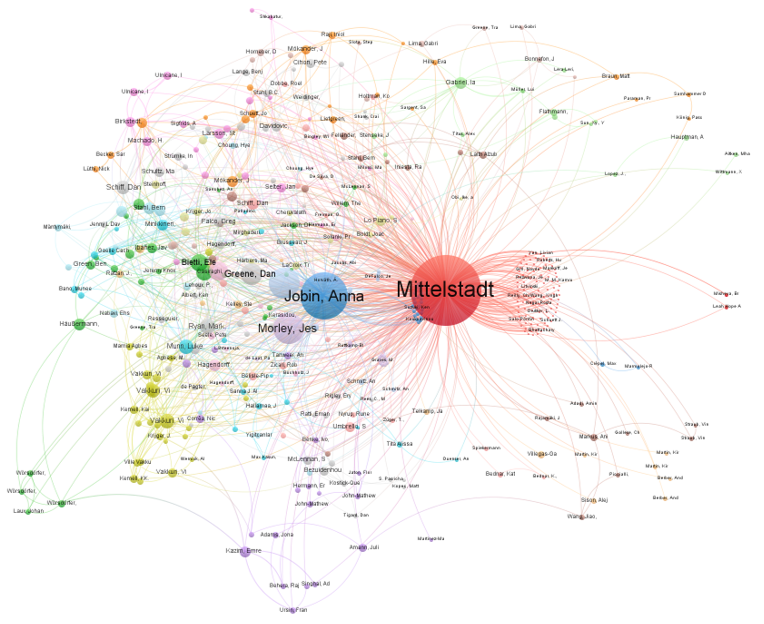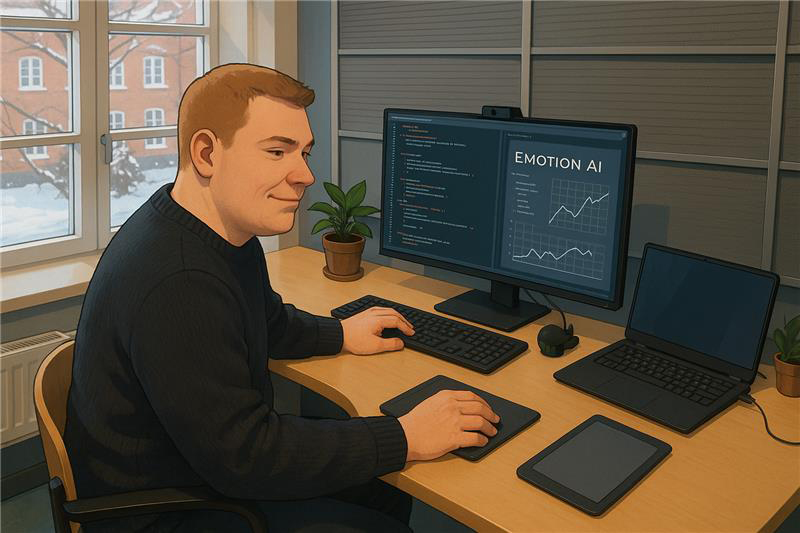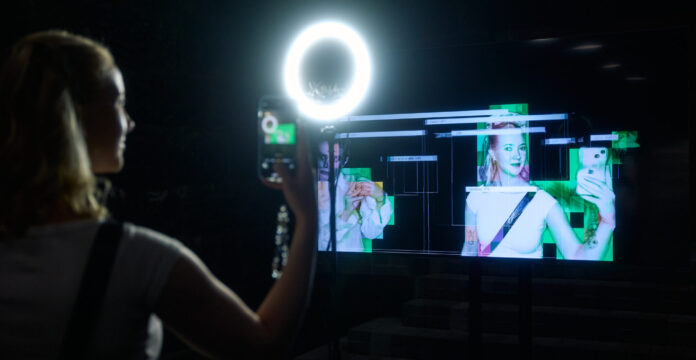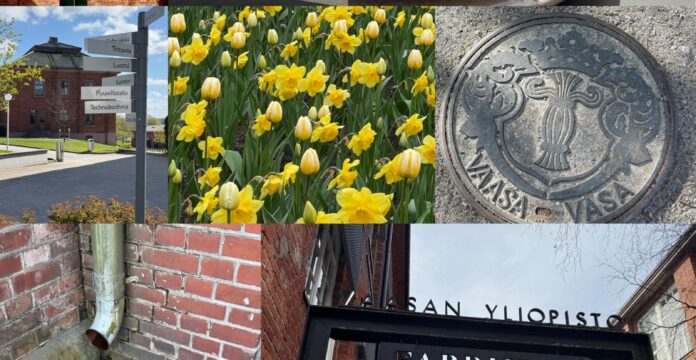If you have had anything to do with the VME on a practical level over the last few years, then one person you were bound to have met is Joni-Roy Piispanen. Joni-Roy is currently a Doctoral Researcher at the University of Vaasa, but until recently has been invaluable as both project researcher of the NATUREACH and NextGen projects, as well as Lab manager for VME. Joni-Roy represents a wealth of skills and knowledge in both computer science and the ethics of artificial intelligence, and now it is time for you to get to more of his story in this interview.
Who are you?
My name is Joni-Roy Piispanen, I’m 29 years old and have lived in Vaasa for the past 18 months. I’m originally from Central Finland, where I spent most of my life and completed my studies in the cities of Äänekoski and Jyväskylä. I’m currently a second-year doctoral student in Communication Studies at the University of Vaasa. In addition, I work as a project researcher in the NATUREACH and NextGen research projects and serve as Laboratory Manager at the VME Interaction Design Environment. My background is in computer science, which remains one of my greatest passions. I’m a tinkerer at heart, so my role at VME where I get to explore, experiment, and develop research tools suits me perfectly.
What are you doing at the moment?
I’m currently focusing primarily on my own research and studies. I’m also involved in several research projects that intersect with the core themes of my dissertation. My work sits at the crossroads of human-computer interaction and artificial intelligence, with a particular focus on how individuals and organizations engage with emerging technologies. Juggling multiple research initiatives is certainly challenging, but also deeply rewarding. Each project brings new insights and ideas that feed back into my dissertation.
What is your PhD about?
My doctoral research focuses on affective technologies, particularly emotion AI systems designed to recognize, elicit, interpret, simulate, or respond to human affect and emotion. I investigate the implications of integrating these technologies into society and organizations, and examine how they shape human interaction, access, and agency. My earlier work in AI ethics, especially studies on privacy, trust, and the user experience of biometric tracking, provides a critical foundation for this research. I explore not only the opportunities but also the limitations and ethical risks of emotion-aware technologies.

These systems have the potential to solve diverse challenges. For instance, wearable sensors that measure physiological signals like heart rate variability or galvanic skin response can help users become more aware of their emotional states and prompt self-regulation strategies. Applications in mental health can visualize mood patterns over time to support therapy or reflection. For neurodiverse users, emotion AI can enable real-time mirroring of emotional cues in virtual environments, adapt interfaces in response to sensory overload, or personalize communication styles to individual needs. In broader contexts such as education, emotion-aware tutors can adjust their tone or pace in response to frustration or confusion. In the workplace, meeting tools might flag collective emotional fatigue. In healthcare, passive monitoring of affective signals can aid in early detection of relapses in mood disorders.
Despite their promise, most current AI systems lack the nuance to accommodate differences in how individuals process emotion and information. Neurodivergent users are particularly affected by these limitations, as many systems are designed with narrow assumptions about communication, emotion, and cognition. The aim of my research is to help bridge this gap by informing the development of more humane, inclusive, and emotionally intelligent systems that recognize and respect individual variation. My current focus is on building a state-of-the-art foundation for emotion AI across key domains like education, work, and healthcare.
Why did you choose this topic?
My doctoral topic evolved from earlier interests in AI ethics, gradually narrowing into empirical studies on emotion-related technologies like chatbots and biometric sensors. The foundation for my research was laid in 2017, when I began working on a healthcare-related AI project at the University of Jyväskylä. Back then, I was developing neural network models to identify cancerous tumors in medical images. While the technical work was engaging, I found myself increasingly drawn to the ethical questions surrounding AI development.
That curiosity led me into the then-emerging field of AI ethics. During that time, I met Ville Vakkuri, one of my current doctoral supervisors, who guided my master’s thesis on the discourse of AI ethics in academic literature. Through Ville, I connected with Rebekah Rousi, now my primary supervisor and the research coordinator at VME. Rebekah introduced me to a project focused on user experiences of emotion AI in workplace environments, which became a launchpad for my doctoral dissertation. Since then, I’ve been immersed in the world of affective computing and the many ways it can improve social and technological systems. My dissertation continues this mission to develop technologies that are not only intelligent but also emotionally aware and ethically sound.
Why is VME the right environment for your research?
VME is the perfect environment for my research as I’m enveloped in a multidisciplinary field and context, which mirrors VME as an environment to do research. VME offers a unique environment for research, which is multidisciplinary, collaborative, and experimental. The lab brings together individuals with diverse interests, providing a rich setting for cross-pollination of ideas. This facilitates a kaleidoscopic mixture of views and perspective providing fertile ground for ideation and brainstorming of research topics. On my personal path towards becoming part of the scientific community VME has been godsend in enabling my own metamorphosis from research assistant to independent researcher. I’ve been able to develop relevant skills and bounce off ideas with colleagues in a free-flowing and encouraging environment. The supportive, open environment has allowed me to test ideas, iterate quickly, and engage in meaningful dialogue with peers across disciplines. It has also nurtured my tinkerer instincts. I’ve had the chance to experiment with hardware, sensors, and biometric devices hands-on, helping me gain a deeper understanding of the inner workings of affective systems. Being able to play around with hardware and sensors, which I use in my research has been extremely helpful in establishing a strong foundation to build upon. This practical foundation has been essential in grounding my theoretical research and making it more tangible. VME has been an ideal home for my research journey, supporting both rigorous scholarship and creative exploration, while simultaneously providing a low barrier of entry into the world of research and AI technologies.






What specific research tools and experimental methodologies is Joni-Roy Piispanen developing and managing as Laboratory Manager at the VME Interaction Design Environment?
Visit us S2 Akuntansi